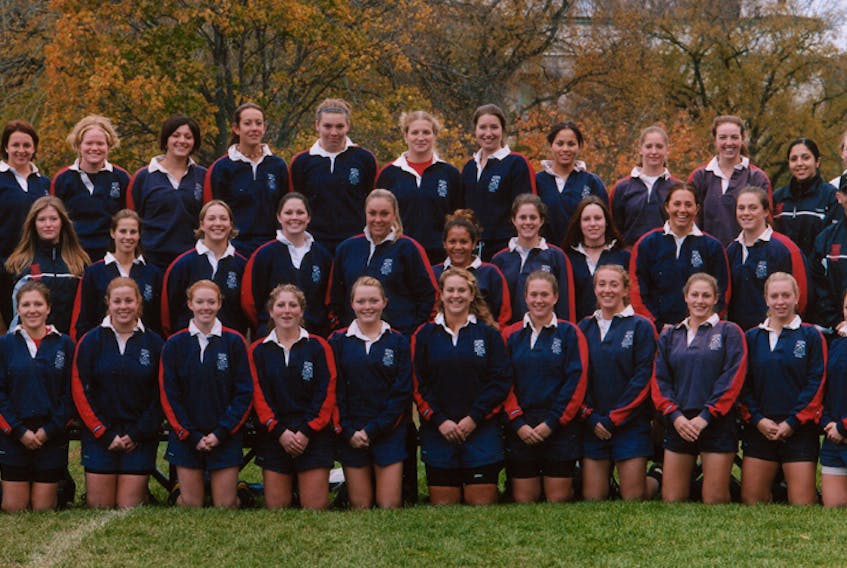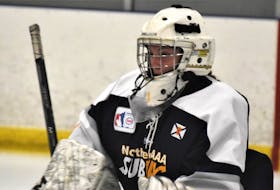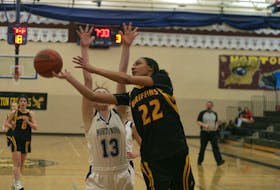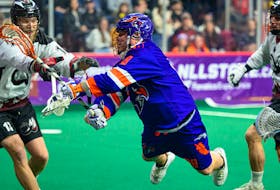Recent news that Acadia University will host the 2018 U Sports Women’s Rugby Championship elicited smiles and salutations from many rugby faithful in Wolfville and throughout the province. Players, patrons and politicians alike were beaming with pride and anticipation, fully cognizant of the significant impact attached to an event that focuses a country-wide spotlight on the host team, university, and town.
“The timing couldn’t be better,” said Wolfville Mayor Jeff Cantwell, who being a rugby die hard had two reasons to smile. “The nationals come at a time (November) when the tourist season is more or less over, the area wineries close down, the cooler weather’s here. Then all of a sudden we get something that spins off $3 or $4 million,” he added, referring to a timely jolt of off-season commerce generated last autumn when Acadia hosted the U Sport women’s soccer championship. The economic spin-off: an estimated $3.2 million for the rural-based town of 4,200.
And the Acadia team has been groomed and geared toward success since a veteran-laden 2015 edition captured the school’s first AUS title, ending arch-rival StFX’s incredible 17-year reign and avenging back-to-back overtime defeats in the previous two conference finals.
And for next year, among the majority of potentially returning players in 2018 are 30 current sophomore and rookie players already seasoned with playoff savvy.
“The last two years were very successful recruiting years,” said head coach Matt Durant, whose charges will be one of eight teams participating in the Nov. 2 to 5 national tournament at the University of Lethbridge. “We’re going to be strongly positioned for the next three or four years, and will be right there among the best in 2018 in front of our home fans.”
Durant, whose troops have never failed to reach an AUS final in his eight seasons on the sideline, admitted the best-before due date on employing the convenient ‘team-is-young’ excuse is just about up. “We’re still a bit young, but this is definitely the last year we’ll be able to say that about this group of girls,” observed the coach, who lost a dozen veterans off that 2015 team, then ushered in 20 freshmen the next year, 10 of whom started.
Acadia (5-3) is one of the lower-ranked teams in Lethbridge, where defending champion St. Francis Xavier (8-0) enters as top seed. The Axewomen qualified for the U Sport Championship by disposing of the stubborn PEI Panthers 53-18 in the AUS semifinal, thereby realizing a primary pre-season goal: finish this season on a field in far-off Lethbridge. Goal No. 2, also attainable in the Annapolis Valley and in southern Alberta, was to acquire additional post-season know-how while performing on the main stage.
(Despite dropping last Friday’s AUS final to St. FX, 58-21, the Axewomen qualified for the nationals as the second team from the Atlantic conference.)
Landing the 2018 rugby nationals served, in part, as validation for the dogged efforts of past Axewomen players and coaches, tireless trailblazers who persevered through lean times and lopsided losses to build a foundation for the program, which eventually was elevated from club to varsity status in 2002.
“Our girls had to order their own uniforms, which were 100-per-cent cotton jerseys and high, high Barbarian shorts,” chuckled former coach Jerrid Gillan, whose four-year tenure concluded after the ’02 transition season.
The team’s budget was a paltry $1,500, a fraction of today’s operating budget.
“We practiced four times a week, two hours a night whether it was 30 degree temperatures or a snowstorm, and we practiced and played all our games on the Dykes fields,” Gillan said. “We dressed and changed on the dykes, we were never ever allowed on Raymond Field. I think one time for a night practice they let us on (adjacent) President Field, which had one light.
“We once played a game at Cape Breton where half the field was completely flooded and had about a hundred ducks swimming on it,” Gillan said, laughing.
There was one crucial thing those early teams never lacked: fan support.
“The Dykes field was always full of fans at our games,” remembered Meaghan Sim (1997-2001), “and the other Acadia student-athletes were also so incredibly supportive. I remember the football guys always being so willing to pitch in and help us at our various fundraisers. They created a kind of brotherhood/sisterhood environment.”
Women’s rugby at Acadia began as a club sport in the mid-1990s, and as with most new endeavours, inexperience and growing pains produced few wins. After showing initial progress in the first few seasons at the varsity level, the team slipped back into mediocrity, posting a dismal 0-6 campaign in 2006 and a 1-5 mark the following year. Consecutive 2-4 seasons produced a glimmer of hope before, as Acadia communications director Eric Cederberg put it, “things began to change.”
From 2010 to present, which happens to coincide with Durant’s tenure at the helm, Acadia is 68-32, overall, including an impressive 36-15 mark in regular-season play. Moreover, it has played in every AUS final during that span including two wrenching 19-12 overtime defeats at the hands of St.FX in ’13 and ‘14.
In 2015, following a 5-1 regular season, Acadia once again travelled to Antigonish for a conference-deciding saw-off. What transpired marked the program’s shining moment to date, an emphatic 34-17 road triumph. (At the ensuing nationals in Durant’s hometown of Kingston, in its opening contest, Acadia carved an early 17-0 lead against Queen’s before collapsing in stunning fashion, losing 24-17. The Axewomen, who entered play ranked No. 1, finished fifth overall.)
Much of the credit for the team’s turnaround this decade is levelled at Durant, who ventured east in 1995 to play football for Acadia and in the process discovered rugby. As a player he led the Valley Bulldogs to three provincial senior rugby pennants, and as a member of the 2005 Nova Scotia Senior Keltics, earned MVP kudos in the Rugby Canada Super League.
Meanwhile, the biggest intangible in hosting a national championship is exposure, which is already paying off. Though still a year away, Durant said he’s already noticed an uptick in interest from potential first-year players in 2018.
“Just in the first few days after the announcement, we’ve had positive feedback from those recruits we’re trying to attract. Most of these girls have played in provincial and national tournaments, so when they see that we’re hosting the nationals, it hits a hot button in them.”
Even Acadia oldtimers are thrilled to see their alma mater hosting top-flight women’s rugby.
“It’s absolutely a wonderful thing for the women’s program,” noted recent Acadia sports hall-of-fame inductee Don MacVicar, who starred as an Axeman rugby fly half for three seasons (1953-55) before joining the popular new sport on the block, football. “The additional news coverage and recognition will lift rugby’s profile at the university and throughout Nova Scotia, the more coverage the better!”
Patrick Kennedy is a retired newspaper reporter and the father of Acadia second-year player Annie Kennedy. He lives in Kingston, Ont., with his wife Lorraine and 10-year-old son Joseph.









